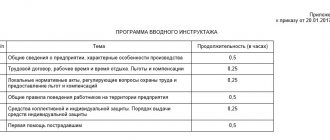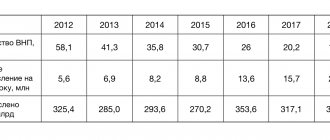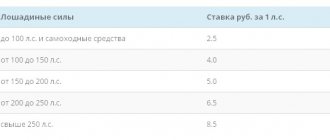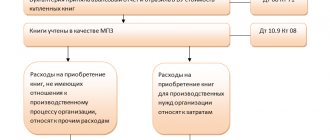Statutory audit 2021
Mandatory audits are carried out annually. Its results are reflected in the auditor's report - an official document intended for users of the audited accounting (financial) statements. Deadlines for mandatory audits are not established by law and are determined by the organization itself. It should be taken into account that the audit report must be submitted to Rosstat along with the annual accounting reports, or no later than 10 working days after the date of the audit report, but no later than December 31 of the year following the reporting year (Article 18 of the Law of December 6, 2011 No. 402 -FZ).
The auditor expresses in the conclusion his opinion on the reliability of the audited statements and indicates the circumstances that may significantly affect this reliability. Having completed the statutory audit, the individual auditor or audit firm transmits its conclusion to the person being audited.
Having received the audit report in hand, the organization, through a special operator, places the results, which received a mandatory audit, in the “Unified Federal Register of Information on the Facts of the Activities of Legal Entities.”
Accounting audit for 2021: what has changed
In 2021, the rules for conducting audits of financial statements have changed. When conducting the audit for 2017, auditors will be guided by international auditing standards (ISAs). Ekaterina Annenkova
, an auditor certified by the Ministry of Finance of the Russian Federation, told what changes await the company.
In addition to ISA, when conducting an audit for 2021, the following documents adopted by the International Federation of Accountants and recommended for use in the Russian Federation by the Auditing Council are used:
- Audit quality concept: key elements that form the audit quality environment;
- International Concept of Assurance Engagements;
- Glossary of terms;
- Structure of the collection of standards issued by the International Standards Board on Auditing and Assurance Engagements;
- Preface to the collection of international standards for quality control, auditing and review, other assurance and related services engagements.
Let us recall that back in 2021, the audit of financial statements was carried out in accordance with the federal rules (standards) of auditing activities approved by the Government of the Russian Federation and the federal standards of auditing activities approved by the Ministry of Finance. These documents have lost force since January 1, 2021 and cannot be used when auditing financial statements for 2021.
The requirements of international standards will affect not only auditors and audit procedures, but also the taxpayers being audited. The latter will have to provide more information to analyze their activities in accordance with the new requirements. And due to the disclosure of more information in the audit report, the degree of confidentiality of the audit results will significantly decrease.
At the same time, taxpayers must still be guided by their native PBUs, in rare cases remembering international standards (in the absence of specific methods of accounting in PBUs - for example, in connection with the organization’s participation in non-state pension programs) and taking into account the requirements of IFRS (when preparing reports in accordance with with them).
Tired of searching for news on multiple accounting sites? Are you afraid of missing really important changes in legislation?
Subscribe to the largest accounting channel BUKH.1S in Telegram
https://t.me/buhru (or type @buhru in the search bar in Telegram) and we will promptly send important news directly to your phone!
PS We also have fun 
What changed
In accordance with the provisions of the Federal Law “On Auditing Activities” No. 307-FZ dated December 30, 2008. ISAs are required for use:
- audit organizations and auditors (clause 1, article 7 of law 307-FZ),
- auditees and other persons who have entered into an agreement for the provision of audit services (clause 2 of article 14 of law 307-FZ).
By Order of the Ministry of Finance No. 192n dated October 24, 2016. 30 international auditing standards (ISAs) were put into effect, and by order of the Ministry of Finance dated No. 207n dated November 9, 2016. - 18 more.
By the same orders, the Ministry of Finance established that ISAs come into force on the territory of the Russian Federation from the date of their official publication and are applied starting from the year following the year in which they entered into force, that is, from January 1, 2021.
In this case, ISAs are used to conduct an audit of accounting (financial) statements prepared for any reporting periods.
Also, orders No. 192n and No. 207n established that in 2021, if an agreement to conduct an audit of an organization’s financial statements was concluded before January 1, 2021, an audit organization or an individual auditor has the right to conduct an audit, including drawing up an audit report, in accordance with auditing standards in force before the entry into force of ISAs.
The application of international standards should ensure that audit reports will contain more information about the state of the business of the audited entity.
In accordance with international standards, when auditing the financial statements of organizations whose securities are admitted to organized trading, as well as in other cases by decision of the auditor, a separate section “Key audit issues” is included in the auditor’s report.
This section provides users of the financial statements with additional information necessary to understand the matters that, in the auditor's professional judgment, were of most significance in the audit of the financial statements for the reporting year.
In identifying key audit matters, the auditor should consider:
- areas of increased assessed risk of material misstatement or significant risks identified in accordance with International Standard 315, Identifying and Assessing the Risks of Material Misstatement by Understanding the Entity and Its Environment;
- its significant judgments in areas of the financial statements that require significant management judgment (including estimates) that have been assessed as subject to a high level of uncertainty;
- the impact on the audit of significant events or transactions that occurred during the reporting period.
The description of each key audit matter should include reference to relevant financial disclosures (if any) and indicate that:
- why the matter was considered to be of most significance to the audit and therefore was identified as a key audit matter.
- how the issue was examined during the audit.
At the same time, the inclusion of key audit issues in the auditor’s report:
1. Does not replace:
- information disclosed by management in the financial statements;
- the auditor's expression of a modified opinion when required by the circumstances of a particular audit engagement in accordance with SFAS 705, Modified Opinion in the Auditor's Report;
- Presenting information in accordance with Standard 570, Going Concern, when there is a material uncertainty due to events or conditions that may cast significant doubt on the entity's ability to continue as a going concern.
2. It is not the auditor’s opinion expressed on individual issues.
The “updated” audit report will be useful not only to the manager and chief accountant, but also to the owners of the company and any other interested users - both potential investors and government agencies.
To express a detailed opinion, auditors will need a larger volume of data necessary when carrying out a full analysis of the activities of organizations.
In this case, it is necessary to take into account the likelihood of abolishing (possibly partial) audit secrecy in the near future. The Ministry of Finance bill contains amendments to Articles 82 and 93.1 of the Tax Code of the Russian Federation. They provide that the tax authority, when conducting an audit, will have the right to request from audit organizations and individual auditors the client documents received by them, which serve as the basis for the calculation and payment of taxes, fees and insurance premiums. It is assumed that tax authorities will require such documents from auditors for tax control purposes if they are not submitted in the prescribed manner by the taxpayer himself. At the same time, audit firms and individual auditors will have to submit the required documents to the tax authorities, regardless of the consent of the taxpayers to whom such services were provided.
A year ago, it was assumed that these amendments to the Tax Code of the Russian Federation could come into force on January 1, 2021. However, the bill has not yet been adopted.
Let us recall that the current legislation contains requirements for conducting a mandatory audit with the subsequent provision of an opinion to Rosstat, as well as for the disclosure of information contained in the audit report within a certain time frame.
Who is subject to mandatory audit
Mandatory audit is carried out annually by companies that are obliged to conduct it in accordance with the requirements of Federal Law No. 307-FZ of December 30, 2008. “On auditing activities.”
In accordance with the provisions of paragraph 1 of Article 5 of the above law, the following categories of taxpayers are subject to mandatory audit:
- joint stock companies
- organizations whose securities are admitted to organized trading
- credit organizations
- professional securities market participants
- insurance and clearing organizations
- Non-State Pension Funds, mutual investment and other funds
- joint stock investment funds and management companies of such funds
- an organization whose revenue (preceding the reporting year) exceeds 400 million rubles or the amount of balance sheet assets at the end of the previous reporting year exceeds 60 million rubles
- organizations preparing consolidated financial statements.
- other organizations, in cases where they are required to do so by federal law, for example, banking groups and bank holding companies, state-owned companies and corporations, housing savings cooperatives and developers, microfinance companies, etc.
The audit report must be submitted to the statistical authorities either simultaneously with the provision of financial statements, or no later than 10 working days from the day following the date of the audit report, but no later than December 31 of the year following the reporting year (Clause 2 of Article 18 of Law No. 402 - Federal Law “On Accounting”).
In addition, in accordance with paragraph 6 of Article 5 of Law No. 307-FZ, information on the results of a mandatory audit is subject to inclusion in the Unified Federal Register of information on the facts of the activities of legal entities. This must be done promptly - within three working days after the date of the audit report. There is a fee for posting information in the register. And it’s better to pay it in advance so as not to violate the three-day deadline.
But there is no need to provide an audit report to the Federal Tax Service, since it is not included in the financial statements in accordance with Article 14 of Law No. 402-FZ.
Penalties
The Administrative Code provides for fines both for violating the deadlines for providing an audit report/information on its results, and for failure to conduct a mandatory audit.
Thus, according to clause 2 of Article 15.19 of the Code of Administrative Offenses of the Russian Federation, non-disclosure or violation by an issuer, a professional participant in the securities market, a clearing organization, a joint-stock investment fund, a management company of a joint-stock investment fund, a mutual investment fund or a non-state pension fund, a specialized depository of a joint-stock investment fund, a mutual investment fund or a non-state pension fund, or a person providing services for the public presentation of disclosed information, the procedure and timing of disclosure of information, as well as disclosure of information not in full, is punished very severely. Officials may be fined in the amount of 30,000 to 50,000 rubles or disqualified for a period of 1 to 2 years. Legal entities face an even more serious fine - from 700,000 to 1,000,000 rubles.
Based on clauses 6-8 of Article 14.25 of the Code of Administrative Offenses of the Russian Federation, untimely submission of information to the Unified Federal Register entails a warning to officials or the imposition of an administrative fine on officials in the amount of 5,000 to 10,000 rubles. In case of relapse and committing the same violation again, the fine will be 10,000 - 50,000, and in addition, the official may be disqualified for a period of one to three years.
In accordance with the provisions of Article 19.7 of the Code of Administrative Offenses of the Russian Federation, for failure to provide information to Rosstat (in compliance with the deadlines provided for by law), liability is established in the amount of 300 to 500 rubles for officials and from 3,000 to 5,000 rubles for legal entities. In addition, under the same Article 19.7, the company can be separately fined for the fact that the information was presented incompletely (Rosstat letter No. 13-13-2/28-SMI dated 02/16/2016)
Statutory audit: criteria 2021
The criteria that determine the need for a statutory audit are certain conditions that an organization must meet. Let's list what these criteria are:
- organizational and legal form of the legal entity (for example, all joint stock companies are subject to mandatory audit);
- carrying out a certain type of activity (insurance, banking, etc.);
- certain financial indicators (income or value of assets of a legal entity exceed a certain limit);
- the legal entity is a specific state corporation or organization (Central Bank, Russian Railways, etc.);
- the need to present consolidated reporting.
Concept of audit and audit services
Audit services include the audit itself, which can be mandatory or proactive, and related services. The purpose of the audit is to check the company’s reporting, because economic and managerial plans and management decisions, as well as the owners’ profits, depend on its reliability.
“Since the regulator of activities in the field of audit is the Ministry of Finance of the Russian Federation, information from the checklist of audit companies and auditors can be found on its official website.”
There are several other definitions of auditing:
An audit is a systematic process of obtaining and evaluating objective data about economic actions and events, establishing the level of their compliance with a certain criterion and presenting the results to interested users;
- this is the process of reducing information risk for users of financial statements to an acceptable level;
- this is a set of methods aimed at establishing the effectiveness and integrity of the management system and the accuracy of financial statements;
- this is independent financial control over the activities of organizations, carried out by independent certified auditors in order to confirm the reality of the data presented in the financial statements;
- is the independent examination and expression of an opinion on a company's financial statements by a designated auditor in accordance with generally accepted accounting principles.
Organizations subject to mandatory audit
The Law “On Auditing Activities” dated December 30, 2008 No. 307-FZ contains a list of cases of mandatory audit, but it is not exhaustive. The subjects of mandatory audit are most fully listed in the “Information of the Ministry of Finance of the Russian Federation” dated January 11, 2017.
The cases of mandatory audit indicated in the “Information” are a table of 69 points, grouped by main criteria, indicating legal norms, reporting that must be checked, as well as requirements for auditors entitled to conduct such audits.
So, based on the criteria, mandatory audits are carried out by the following organizations:
- joint-stock companies, funds, federal state unitary enterprises, state corporations, state companies, public law companies (clauses 1-9 of the Information);
- companies whose securities are admitted to trading, credit organizations, credit history bureaus, insurance companies, mutual insurance companies, trade unions of insurers, professional participants in the securities market, clearing organizations, trade organizers, depositories, and mandatory audits are also carried out by joint-stock investment funds, non-state pension funds, microfinance organizations, organizers of lotteries and gambling, credit and housing savings cooperatives, self-regulatory organizations, political parties, developers, etc. (paragraphs 10-50 of the Information);
- conduct a mandatory audit of an organization whose revenue for the previous year exceeds 400 million rubles, or whose balance sheet assets exceed 60 million rubles (clause 68 of the Information);
- mandatory audits of reporting are carried out by the Central Bank of the Russian Federation, the Deposit Insurance Agency, Vnesheconombank, the Housing and Utilities Reform Assistance Fund, Roscosmos State Corporation, Russian Railways JSC, the Credit Assistance Fund and others (clause 11-67 of the Information);
- Mandatory audit is carried out by all organizations that present and/or publish summary (consolidated) accounting (financial) statements (clause 69 of the Information).
Features of legal regulation
From January 1, 2021, mandatory parameters of 30 international auditing standards (ISAs) were introduced in Russia, according to the order of the Ministry of Finance of the Russian Federation dated October 24, 2016 No. 192n. Additionally, by Order of the Ministry of Finance dated November 9, 2016 No. 207n, 18 new auditing standards were approved. Overall, auditing has become more transparent and in line with international standards, but is more cumbersome and therefore more expensive.
As a general rule, the criterion for a mandatory audit is:
- a specific objective fact of the economic life of an enterprise;
- certain legal status of the organization.
The main problem is that the mandatory audit criteria are not collected in any one regulatory document. Therefore, they have to be literally fished out from various legislative acts.
There is no complete list of criteria for conducting a mandatory audit even in the relevant 2008 Law “On Auditing Activities” No. 307-FZ. He has an open character here. Let's turn to him.
Mandatory audit for LLC
The law does not require an LLC to present an audit report as part of its reporting. However, for such legal entities, a mandatory accounting audit is possible based on the financial criterion, if the permissible amount of revenue/assets is exceeded. This is not possible only in the first year of activity, since they do not yet have indicators for periods preceding the reporting one. If other criteria are met, the LLC is subject to mandatory audit.
A mandatory audit of a small enterprise will be carried out similarly, if the legal entity meets the above criteria. Having the status of a small business entity does not matter.
Opportunity to reduce costs for statutory audits in 2021
The introduction of a new form of auditor's report and new auditing standards will seriously affect the company's costs for mandatory audit, because will require a significant increase in the workload both on the accountant and financial management of the company, and on the auditors, which will certainly lead to an increase in audit costs.
However, for a number of companies, the government has left a legal way not to apply the auditing standards that have come into force. Thus, if the audit agreement was concluded before January 1, 2017, then the audit can be carried out according to 2016 standards, thereby allowing companies to delay the increase in costs for mandatory audits in 2021 for at least one year.
Statutory audit: responsibility
If an organization that requires a mandatory audit fails to submit or violates the deadline for submitting an audit report to Rosstat, fines may amount to (Article 19.7 of the Code of Administrative Offenses of the Russian Federation):
- from 3000 to 5000 rub. for the organization
- from 300 to 500 rub. on officials.
For failure to conduct a mandatory audit, the fines are already more significant (Article 15.11 of the Code of Administrative Offenses of the Russian Federation):
- from 5,000 to 10,000 rubles. to the management of the organization;
- in case of repeated violation - up to 20,000 rubles, or disqualification of the official for 1-2 years.
If a JSC does not have a mandatory audit of financial statements, then the amount of fines increases many times (Article 2, Article 15.19 of the Code of Administrative Offenses of the Russian Federation):
- from 30,000 to 50,000 rub. – to the management of the joint-stock company;
- from 700,000 to 1,000,000 rubles. - for the organization.
The procedure for conducting an audit of financial statements
The entire procedure can be divided into 3 main stages:
- Preparatory work. The company conducting the audit draws up an audit plan, an audit team and determines the required time for the procedure.
- Analysis of the state of accounting. This is the main stage, during which specialists carefully collect all the data and check the state of the accounting department as of today.
- Formation and issuance of conclusions. Based on checks and available evidence, specialists form a conclusion based on the results of the audit.
In this case, the conclusion can be of two types:
- Unmodified. It is issued if the financial statements reliably reflect the facts of economic activity and the financial position of the audited entity.
- Modified. Issued if the financial statements contain significant distortions or the auditor cannot confirm the reporting data at all.
Standards and quality of audit services
For those working in the field of audit, standards are required: international (ISA) and self-regulatory organizations (SRO).
In addition, it is necessary to comply with the rules of both internal and external verification of the quality of audit services.
“External quality control is carried out by self-regulatory organizations (clause 4 of article 10 of the Law on Mandatory Audit).”
In 2021, a new article 10.1 was introduced, regulating the external audit quality check carried out by Rosfinnadzor (Federal Law No. 96-FZ dated May 1, 2017).
The concept of an auditor and an audit company
In accordance with Art. 3 and 4 of the Federal Law on mandatory audit, the audit performers are the audit organization and the auditor. Among the requirements necessary to obtain the right to conduct an audit are membership in one of the self-regulatory organizations (SROs), and for an auditor, also successful passing of an exam to obtain a certificate.
“In order for an audit company or auditor to be part of one of the SROs that maintains their register, they need to comply with certain articles. 18 Federal Law on mandatory audit requirements"








